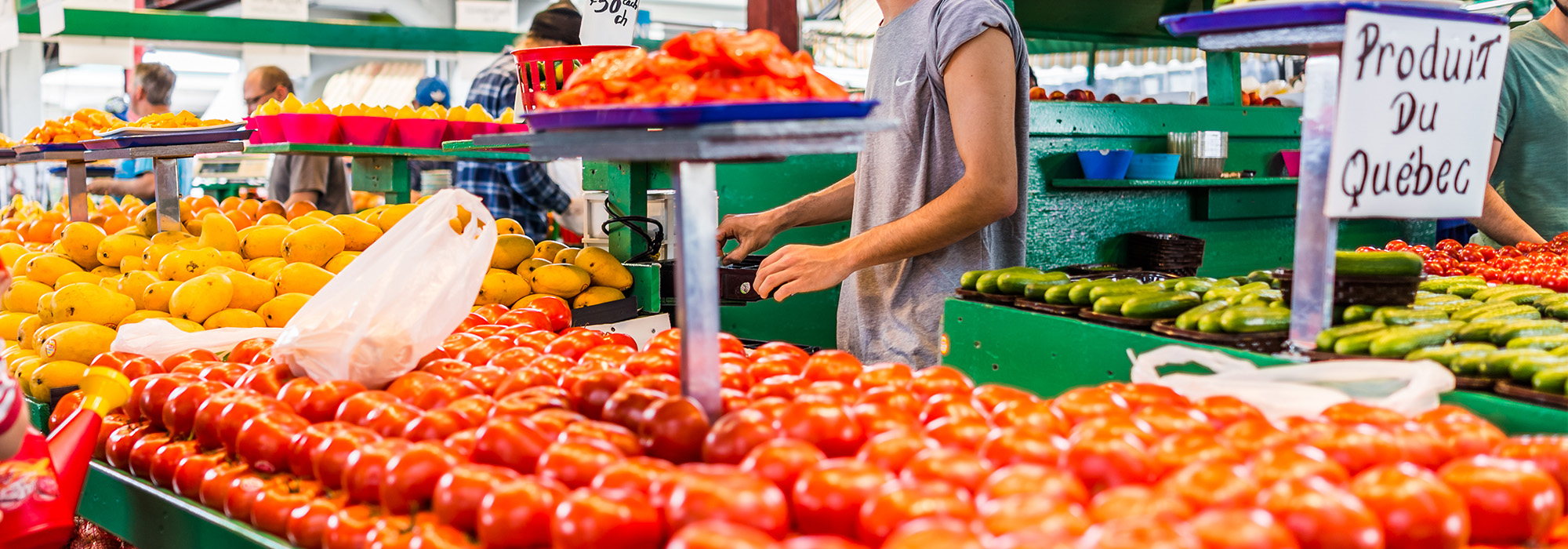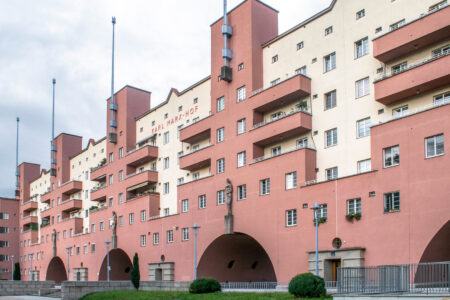
Food plays an important role in the health of all Canadians. Our food systems are closely intertwined with our economy, environment and physical, social and cultural wellbeing.
Yet in Canada food insecurity – meaning a lack of access to affordable food of sufficient quantity and quality, largely due to poverty – is on the rise. Reliance on food banks is going up. With the exception of Manitoba and Ontario, all provinces reported an increase in food bank use between 2015 and 2016. Even more troubling: over one-third of food bank users in this country are under the age of 18.
In this era of urbanization where over 80 percent of Canadians now live in cities, cities are stepping up to meet these policy challenges and play a more proactive role in developing sustainable, resilient and health-focused food systems. One way they’re doing this is through the development of food policy councils.
The latest example is in Montreal. Following in the footsteps of Toronto and Vancouver, community organizers in this city recently announced the creation of a food policy council. The role of a food policy council is to study how a given food system operates and offer actionable ideas and policy recommendations on how to improve it.
Scheduled for an official launch in the spring of 2018, the council will serve as a hub of expertise around four key policy areas: food security for all, urban agriculture, the procurement of healthy food through institutional and alternative channels, and food waste management. It will bring together representatives from across the city’s food system – producers, processers, distributors, consumers, and food waste managers – as well stakeholders from public health institutions, the Ministry of Agriculture, community and environmental groups, farmers and academic researchers.
“We always think about how to create a better city in terms of mobility, housing, transportation, access to schools,” Montreal mayor Valérie Plante recently told me. “How come we don’t think about it in terms of access to fresh food?”
Back in 2014, Plante – who unseated Denis Coderre in November 2017 to become the city’s first female mayor – was one of two opposition councillors to submit a motion for the creation of a food policy council.
“I was elected in the Centre Sud which, from a socio-economic perspective, is a less advantaged area [of Montreal],” she explains. “Around 65 percent of elementary school kids benefit from programs where they get food at school. As I was walking around and discovering my district it was easy to see why. It is difficult for the population to get fresh food at an accessible price. There is maybe one supermarket. Many people have to do their shopping at the Dollar Store and there are lots of food banks. Food is not something that is traditionally part of the city mandate, and I was questioning this at the time.”
Plante’s observations are backed up by .evidence According to the Foundation of Greater Montreal’s 2017 “Vital Signs” report, over 171,800 Quebecers used a food bank in March 2016, up 5.3 percent from the same period in 2015 and up 34.7 percent from 2008. The most affected populations are families with children (who accounted for 43 percent of food bank users), low-income earners and renter households. Over 35,000 children under the age of 18 in Greater Montreal rely on food assistance programs run by food banks, including other food programs like meal and snack distribution, cooking workshops and community kitchens.
Montreal has the highest proportion of food insecurity in the province. In 2011–12, approximately 1 in 10 households in greater Montreal — 11.3 percent — experienced moderate to severe food insecurity, the Foundation of Greater Montreal reported. Only one-third of high school students consume the recommended daily portion of fruits and vegetables. At the same time, obesity is on the rise among Quebec children.
The idea of food councils is growing in popularity. The Center for a Livable Future, an interdisciplinary research centre based at the Bloomberg School of Public Health of Johns Hopkins University in Baltimore, has studied the growing movement of food policy councils, noting that there are more than 300 of them in North America.
The movement around food and food security in Montreal is not new. The current initiative is an outgrowth of the Système alimentaire montréalais, a network of more than 250 local and regional partners founded in 2011 and connected to Montréal, métropole en santé. In 2015, Montreal signed the Milan Urban Food Policy Pact, which serves as the main reference point for Montreal’s food policy council.
Now that Plante is in the driver’s seat at city hall, she wants Montreal to take a leadership role in supporting the food policy council and its stakeholders across the island.
“It is important to do the mapping, to look at what’s different in different boroughs, what works and what doesn’t,” she said. “How can we make this a city project instead of many small projects? How can we make sure that all actors and partners are around the table? We have to think about how to distribute, how to work with food banks and the big brands, to get the food that they’re not using and connect it to people who need it.”
All of this involves some thinking outside the traditional urban food system box. There are all kinds of fun, creative ways to make food accessible to the population of a city, insists Plante. A few examples include putting fresh, healthy foods in dépanneurs (corner stores), or organizing farmer’s markets outside of outlying metro stations, bus stops, libraries and public swimming pools.
Ensuring that Canadians have access to healthy food means developing strategies that take into account issues of poverty, the environment, housing, health, economy, land-use planning, transportation, energy and education. Food policy councils, like the one currently being set up in Montreal, can help provide targeted solutions to this complex set of policy challenges.
Photo: A scene from Montreal’s Jean Talon Market, May 2017. Shutterstock/By Kristi Blokhin
Do you have something to say about the article you just read? Be part of the Policy Options discussion, and send in your own submission. Here is a link on how to do it. | Souhaitez-vous réagir à cet article ? Joignez-vous aux débats d’Options politiques et soumettez-nous votre texte en suivant ces directives.







